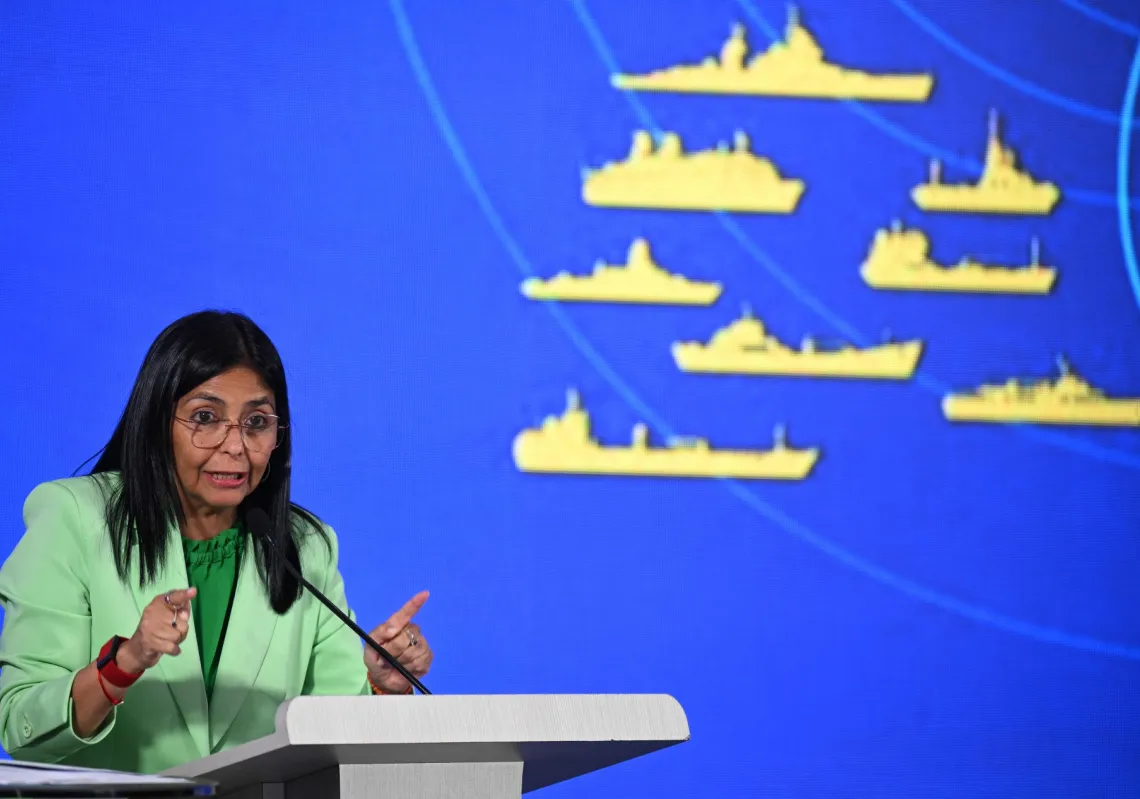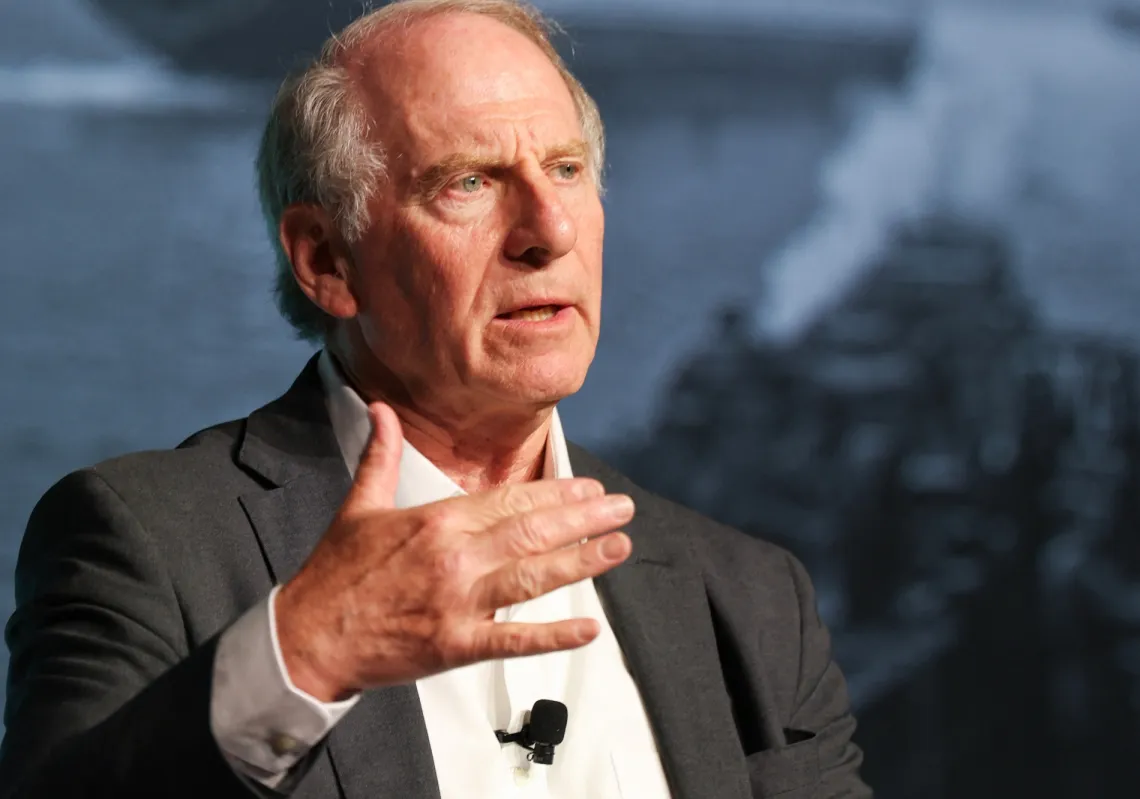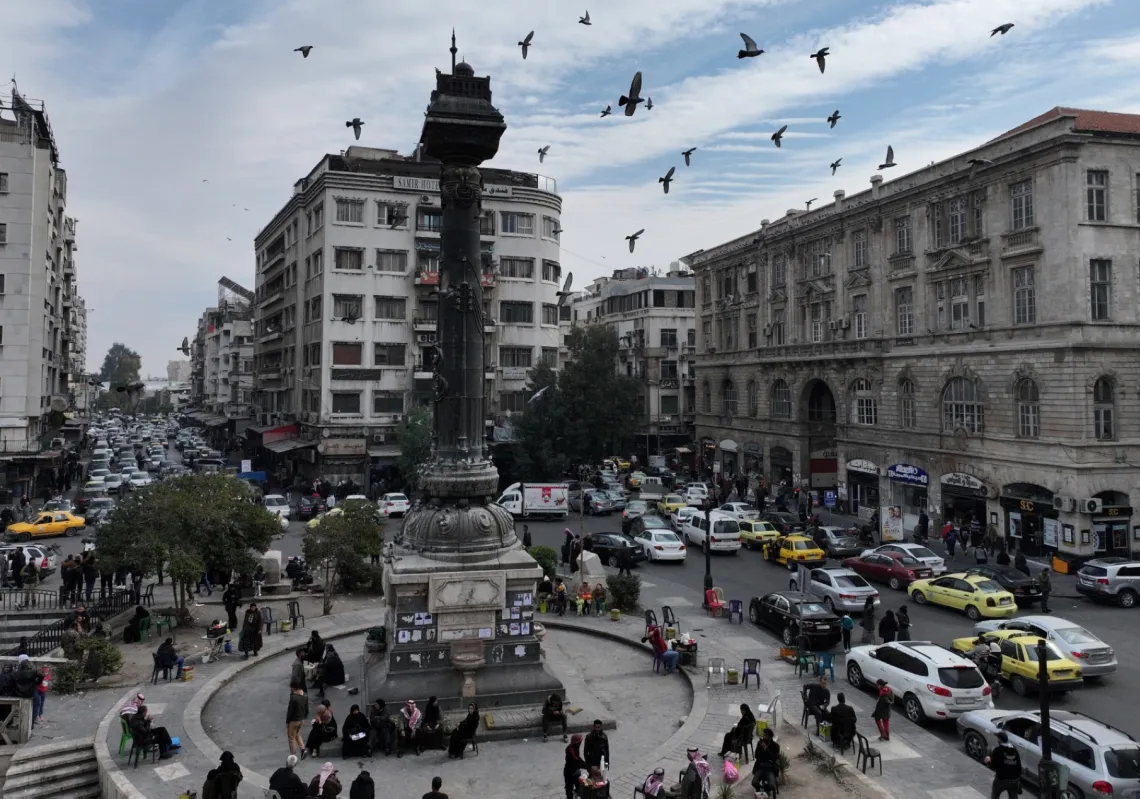 President Obama Delivers Speech On Mideast And North Africa Policy[/caption]
President Obama Delivers Speech On Mideast And North Africa Policy[/caption]
According to modern realist theory, because the ordering principle of the international system is anarchy—that is, there is no central authority to govern interactions between states—each one must act as a self-help unit in ensuring its survival and securing its interests. As Kenneth Waltz, the founder of neo-realist theory puts it in his book, Theory of International Relations, “Because some states may at any time use force, all states must be prepared to do so—or live at the mercy of their militarily more vigorous neighbors.”
This realpolitik is at odds with the liberal principles that guide America’s domestic society. Not surprisingly, US policymakers often eschew realism in formulating the country’s foreign policy, instead opting for a policy based on liberalism. As John Mearsheimer observes in The Tragedy of Great Power Politics, “Americans tend to be hostile to realism because it clashes with their basic values… [such as their] deep-seated sense of optimism and moralism…. Liberalism, on the other hand, fits neatly with those values. Not surprisingly, foreign policy discourse in the United States often sounds as if it has been lifted right out of a Liberalism 101 lecture.”
The US response to the Arab Spring bears out Mearsheimer’s observation. As a theory of international relations, realist theory has little to say on the uprisings themselves. Nonetheless, realists would have cautioned against the undue optimism that gripped the US foreign policy establishment as Egyptians flooded Tahrir Square, and warned against the unsound policies that flowed from this optimism. Moreover, a realist-based Middle East policy would almost certainly reduce the newly-empowered Arab masses’ hostility towards the United States.
Inevitable Success
US policymakers first erred in assuming that the social uprisings would inevitably succeed. Like many observers, Americans concluded from the uprisings in Tunisia and Egypt that the state’s coercive power could no longer silence citizens armed with social media and satellite television. Given their belief in the primacy of states and hard power capabilities, realists were inherently skeptical of this claim.
Indeed, for realists the events in Tunisia and Egypt revealed the importance of military capabilities. Unlike in neighboring countries, the Tunisian and Egyptian militaries were professional forces with strong ties to the US and power bases independent of the ruling regimes. In fact, before protests broke out, the Egyptian military had been quietly waging a power struggle against Mubarak to prevent him from installing his son, Gamal, as his successor. They therefore had little reason to shore up his regime, and instead determined their interests would be best served by easing Mubarak from power. So far, this calculation appears to have been accurate.
The erroneous expectation that subsequent uprisings would follow the Egyptian model came to have real costs for the United States, most notably in Libya. Although a number of factors influenced President Obama’s decision to support NATO’s intervention in that country, the President himself said a leading reason was his fear that Qadhafi success in violently repressing protestors would create a ripple effect throughout the region. While NATO’s intervention has certainly affected other leaders’ methods of repression—such as Bashir Al-Assad forgoing the air power that had saved his father’s regime—uprisings in other countries have predictably resulted in horrific state-sanctioned violence.
At the same time, administration officials readily admitted that the US had no vital interests in Libya. Although the intervention went more smoothly than its critics had anticipated, it was far from cost-free. To begin with, much of the non-Western world came to see NATO’s actions in Libya as an illegitimate exercise of power, and consequently refused to support US leadership on other issues like Iran and Syria. More troubling for US interests, North Korean and Iranian leaders took NATO’s role in overthrowing Qadhafi as vindication of their nuclear policies.
The Democracy Illusion
US policymakers also erred in assuming that the successful uprisings would invariably lead to liberal democracy. Democracy, in fact, was the least likely outcome of the Arab Spring.
To begin with, sudden social upheavals have almost never produced democracies. Instead, they usually lead to lengthy, violent power struggles that only cease when a totalitarian government assumes power. As Waltz rightly observed in Theory of International Politics, “Struggles to achieve and maintain power, to establish order, and to contrive a kind of justice within states, may be bloodier than wars among them.” Indeed, for revolutions in their most extreme form—which no Arab nation has undergone thus far—this is almost certainly true. The Soviets consolidation of power under Lenin and Stalin, for example, claimed at least 30 million lives; Mao’s erratic policies, killed over ten million Chinese; while Pol-Pot’s four-year reign wiped out over 25 percent of Cambodia’s population. Notably, to this very day none of these countries are considered democratic.
The Arab world’s own modern history offered additional lessons. Specifically, although the region has witnessed two broadly-based political movements since WWII—Nasser’s pan-Arabism in the 1950’s and 1960’s, and the less cohesive economic and political protests of the 1980’s and early 1990’s—neither facilitated democracy in the region. In fact, as Marc Lynch notes, “Waves of regional mobilization have repeatedly ended not with democratization but with the deeper entrenchment of authoritarian regimes.” There was little to suggest this time would be different.
US Interests and the Arab Spring
Nor was there much reason to think the social uprisings would benefit the United States. Although many in Washington harbored certain concerns about the Arab Spring—ranging from a decline in Israel’s security and the empowerment of Islamists, to the more puzzling fears that Al-Qaeda or Iran would benefit from the movement—there was a general consensus in the Beltway that Washington would ultimately benefit from the region’s transformation. Former Secretary of State Condoleezza Rice captured the prevailing mood when she asked Americans “to trust in the long arc of history,” which apparently revealed that US “interests and ideals will be well served” by a democratic Middle East.
There was little to corroborate this account of the long arc of history. The United States’ primary interest in the region is in ensuring the free flow of oil. Although the US itself does not get much of its energy from Middle Eastern petroleum, the European and Asian markets that are important for the health of the US economy are highly dependent on it. The US therefore has an interest in protecting oil supplies in the region, which—in the absence of a potential hegemonic power—equates to maintaining a degree of stability.
Hardly anything is more destabilizing than revolutions, whether democratic or not. As noted above, revolutions unleash an extended (usually violent) power struggle between societal groups seeking to define the new political and social order. Democratic transitions are especially turbulent. As Jack Snyder and Edward Mansfield recount in Democratic Transitions, Institutional Strength, and War, “Since the French Revolution, the earliest phases of democratization have triggered some of the world's bloodiest nationalist struggles.”
In this context, it is not surprising that in June 2011 nearly 40 percent of Egyptians said they did not feel safe walking home, up from just 17 percent the year before. Similarly, the 2012 Global Peace Index listed the Middle East and North Africa as the world’s least peaceful region, dislodging Sub-Saharan Africa from the top spot it had occupied since 2007.
Rapid social change within states also creates regional instability. A study by Harvard University’s Steve Walt, for instance, found that nascent revolutionary states have a greater propensity for interstate conflict. Moreover, statistical studies have shown that states transitioning from an autocracy to democracy are “two-thirds more likely to become involved in any type of war (and about twice as likely to become involved in an interstate war) than states that remained autocracies.”
Democracy will also impede US diplomacy in the region more generally, given America’s exceptionally low approval ratings among Arab publics. Although US policymakers recognized this, most believed Washington could rapidly rework its image by supporting the protestors. Thus, after noting the Arab world’s distrust of the US, President Obama proclaimed, “We face a historic opportunity. We have the chance to show that America values the dignity of the street vendor in Tunisia more than the raw power of the dictator.”
So far the results have not been encouraging. One way the administration sought to demonstrate US support for the “dignity of the street vendor” was by intervening in Libya. As Secretary Clinton explained shortly after NATO’s operations commenced, “If you look at the coverage on Al-Jazeera… there is a great deal of appreciation for what we and others have done” to stop Qaddafi.
Even if true at the time, the appreciation certainly faded quickly. In fact, hours after NATO began flying sorties over Libya, the Arab League—who strongly lobbied for intervention in the first place—criticized the Atlantic powers’ actions. A year later, a plurality of citizens in eight Arab countries, as well as in Palestine and Somaliland, said they opposed NATO’s Libyan campaign.
The Obama administration also tried to improve America’s image by supporting democratic transitions and civil societies in the Arab world. This too came to naught. The writing was already on the wall by March 2011, when young Egyptian leaders involved in the uprisings flatly refused to meet with Hillary Clinton. The following month, 79 percent of Egyptians said they viewed the US unfavorably.
Undeterred, President Obama pledged millions of dollars in aid to Egypt, and the State Department established an entire office dedicated to supporting the region’s democratic transitions. Yet in February 2012, nearly three-quarters of Egyptians said they opposed US aid to their country. Moreover, a March 2011 poll revealed that 56 percent of Egyptians were against establishing closer relations with the US; less than a quarter supported doing so.
And although regional support for Democracy remains exceptionally high, opinion of the US has yet to improve. In fact, a recent survey of thousands of individuals in 12 Arab countries found that 73 percent of respondents saw the US or Israel as the most threatening nations to themselves or their countries. Only 5 percent said the same of Iran.
Conclusion
The Obama administration, then, has had no more success in improving America’s image in the Arab world after the uprisings than it had before them. Part of this reflects Arabs’ deep-seated mistrust of the US, which is likely to persist for some time to come.
Nonetheless, the administration’s soft power offensive towards the Arab world would have likely found greater success if the President had adopted a realist-based Middle Eastern policy. One of the major deficiencies of the administration’s outreach effort was its failure to consider what was fueling Arabs’ anger towards America in the first place. Ironically, given realism’s reputation in Washington, a realist Middle Eastern policy would be largely consistent with what Arabs themselves had said they want the US to do on the issues that matter most to them.
For example, surveys have consistently shown Arabs strongly oppose the US military’s presence in their region. Although the Obama administration reluctantly withdrew from Iraq, it ramped up US military deployments elsewhere to counter Iran. This included deploying 2 or 3 aircraft carriers in the Persian Gulf at all times, expanding drone strikes in countries like Yemen and Somalia, deploying F-22 fighter jets to the United Arab Emirates, holding large-scale military exercises in Jordan, and making port calls to Saudi Arabia for the first time in years.
In contrast, American realists have consistently favored an offshore balancing strategy towards the Middle East, where the US military’s footprint would be virtually eliminated. Indeed, realists contend that America’s basing polices have merely helped fuel globally-oriented terrorist groups like Al-Qaeda, and motivated countries like Iran to seek nuclear weapons. In fact, with regards to Iran many realists have advocated a grand bargain, given the many overlapping interests between Iran and the US.
Surveys have also shown that Arab attitudes towards the US are colored by the perception that America favors Israel in its ongoing conflict with the Palestinians. Indeed, in a 2008 poll of six Arab countries, 50 percent of respondents said brokering a Middle East peace deal would be the best way for the US to improve its image. The Obama administration has not heeded this advice, however, and in fact has abandoned its attempts to restrain Israel’s settlement expansion, deepened defense ties with Tel Aviv, and used its veto at the UN Security Council to thwart the Palestinian Authority’s renewed bid for statehood recognition.
Realists, on the other hand, have long been some of the only members of the US foreign policy establishment to support taking a harder line with Israel, particularly in its dispute with the Palestinians. Although most realists agree that the US should come to Israel’s aid if its survival becomes threatened, they are incensed by what they claim is Washington’s unconditional support for Tel Aviv, even on issues where the two countries’ interests diverge. Instead, realists believe that the US should use its leverage over Israel to pressure it to adopt policies more in line with US interests, most notably achieving a two-state solution.
Whatever one thinks of the merits of realists’ policy prescriptions for the Middle East, few can deny that they would be far more popular among the newly empowered Arab people than current US policy.









